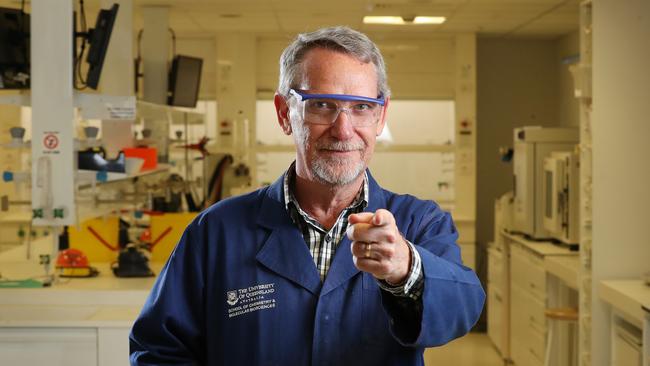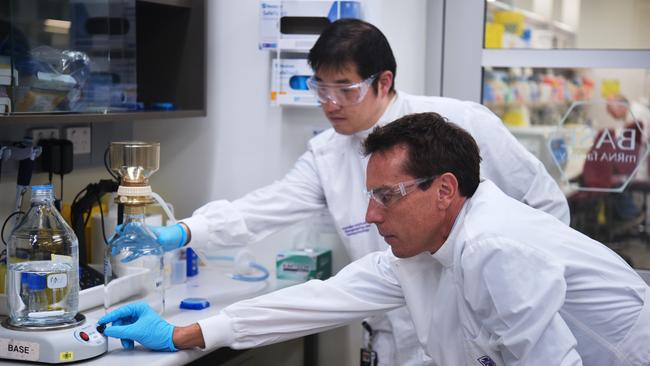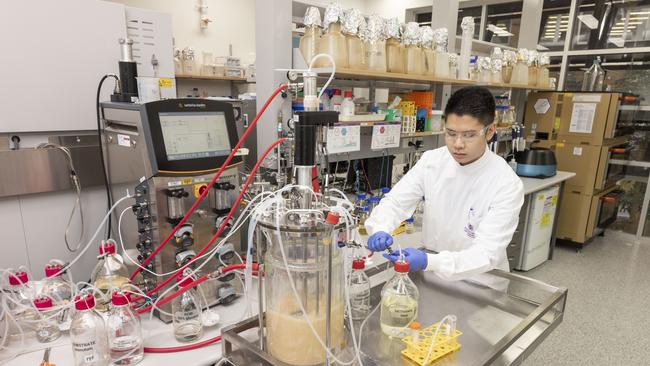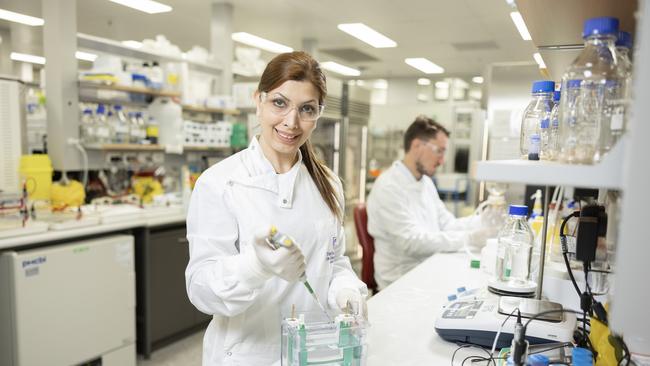It’s a deal: UQ, US scientists team up to tackle next pandemic
Australian and US scientists partner to develop new generation of vaccines for the inevitable next pandemic

Australian scientists have teamed up with some of America’s top medical researchers to speed the development of a vaccine for the next pandemic.
The partnership announced on Wednesday commits the University of Queensland and Emory University in Atlanta to scale up pandemic preparedness, as well as disease prevention in the Asia-Pacific region.
Their scientists have been working together for a decade to develop drugs to fight cancer and other diseases, but the enhanced co-operation aims to further reduce the time it will take to get a vaccine into people’s arms when the next global health emergency hits. Another pandemic is seen as inevitable.

The deal puts Brisbane on the map as an international hub for vaccine discovery and development, building on an agreement last year between French drug-maker Sanofi and the Queensland government to establish a $280m translational science institute in the state capital.
It will deepen the collaboration between more than 300 scientists at UQ and Emory, a top US medical research centre, and potentially pave the way for preventers such as the promising molecular clamp vaccine platform.
This technology, designed to plug into a range of pandemic threats, went tantalisingly close to producing an Australian-made vaccine for Covid-19 before false-positive readings to HIV in a human trial forced the development team at UQ to pull the plug.
But the clamp2 platform has been re-engineered to work against other potential pandemic starters such as Nipah virus, ebola, Lassa fever, influenza and emergent strains of the coronavirus that gave rise to Covid, providing an edge that could save countless lives.
“Everything is in that word, ‘preparedness’ – and that is we have the vaccine pipeline ready to go to transition into manufacture next time we need it,” said professor Paul Young, a member of the original clamp team.
“One of the learnings out of the 2020 pandemic experience was the sovereign gaps Australia has in vaccine manufacturing, supply chains. It’s all about building the appropriate pathways through to translation that we were missing in those years.”

Reserve Bank of Australia governor Phillip Lowe revealed on Wednesday that the unprecedented speed at which the Covid vaccine was developed – the first jab was administered in Australia in February 2021, barely a year after the virus was sequenced – defied expert advice to the RBA, prompting it “to do too much” to support the economy with rock-bottom interest rates.
“We thought a vaccine would take years to be developed, restrictions would last for ages and it turned out the scientists developed vaccines in record time … We did what we thought was necessary and in introspect we did too much,” Dr Lowe said.

On hand for the unveiling of the research partnership with Emory at an international biotech conference in Boston, Professor Young said the two universities would also target emerging diseases in the Asia-Pacific such as dengue fever and Zika when the universities’ 10 years of co-operation expanded from drug design and development to vaccines. “The focus will be on rapid progression to clinical trial of a scaled-up number of vaccine candidates for the treatment of Asia-Pacific region viruses and infectious diseases, along with pandemic preparedness,” UQ vice-chancellor Deborah Terry said.
Deputy Premier Steven Miles, on a trade mission to the US, said of the partnership would create important training and knowledge-sharing opportunities, plus high-skilled local jobs.




To join the conversation, please log in. Don't have an account? Register
Join the conversation, you are commenting as Logout